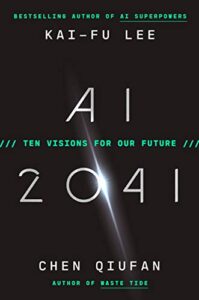It’s the year 2002. I’ve lost my phone while on a business trip – a company issued Nokia 6110 that was over 3 years old and showing its age. I usually carried the phone on a belt clip, and it must have popped off while in a cab or rental car. At my next destination, I go to the nearest AT&T Wireless store and purchase the Nokia 8260. A much smaller phone, it fits neatly in my pocket. In my mind, phones have arrived. The technology has peaked.
Fast forward 20 years and it’s hard to believe how far phones have come. That device I kept in my pocket that was only good for making phone calls has evolved into an extension of my life. The advances in mobile technology has changed not only how business is done but also how our society functions. I’m not sure anyone could have had that level of foresight in 2002.
Phones are just one of many radical technology advancements over the last 20 years that have altered how we live. Given the amount of change over that time, imagine how hard it would be to predict what the future will look like 20 years from now. It’s a near impossible task, but one that authors Kai-Fu Lee and Chen Qiufan take on in their book AI 2041. Through ten short stories, they envision what the world may look in the year 2041 and the opportunities and challenges the advances in technology will present.
To be more specific, Lee and Qiufan look specifically at advances in Artificial Intelligence (AI). Each short story presents an example of how AI will evolve to shape an area of our lives or society as a whole. Through storytelling, they paint a picture that illustrates the opportunities and technologies the various advances will create. Then, after each story, the authors go into more detail showing why they believe and how the technology will evolve. They present ideas to address the challenges presented by these advances to ensure it fulfills the promise of helping us and enriching our lives rather than destroying them. In my opinion, the discussion they provide after the short stories is more informative and interesting than the stories themselves.
AI 2041 is a refreshing look into the future. Most books I’ve read, whether they are sci-fi or non-fiction, take a pessimistic, dystopian view of a world where AI is pervasive. The AI either controls us, is out to get us, or attempts to eliminate us. Lee and Qiufan don’t deny that these are possible outcomes, but they take a more optimistic view of how we can use AI as a tool for progress rather than destruction.
As a literary work, AI 2041 isn’t a masterpiece. But that would be judging it unfairly. I don’t believe the authors set out to create a classic piece of literature. Their goal was to peak into the future, a future where AI is ubiquitous and woven into the fabric of society. They explore how it will benefit us, how it will affect us, and more importantly, how we can put in place the safeguards, rules, and regulations to keep it from harming us. If you read the book with that goal in mind, then you’ll enjoy it. At a minimum, you’ll stretch your imagination as you consider the possibilities of what the future holds.

